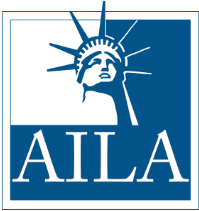Raleigh, NC Alimony Attorneys

Lawyers for Post-Divorce Spousal Support Proceedings in Wake County
If you and your spouse are considering a divorce, you are likely to be concerned about what the future will bring. You might wonder how your children will fare following your divorce. You might also be concerned about how you will adjust to life without your spouse. With divorce as a possibility, you may be looking forward to some time away from your spouse, but what about his or her income?
While single-income families are less common than they once were, one spouse is often the primary wage-earner. In situations such as these, alimony may be appropriate to help offset the effects of the divorce on the lower-earning spouse. At Vasquez Law Firm, PLLC, our skilled family law attorneys have over 35 years of experience helping with alimony questions during a divorce. We are well-versed in the laws that govern divorce and spousal support in North Carolina, and we are equipped to help you prepare for the future.
Trusted Charlotte Divorce Attorneys
Other states may call it "spousal support" or "maintenance," but in North Carolina, it is called alimony. Whichever term you use, they all describe payments that are made by one spouse to the other party in the wake of a divorce. When alimony is ordered, the higher-income spouse—known as the supporting spouse—is required to make payments on a monthly basis to the spouse with the lower income—known as the dependent spouse. However, North Carolina law does not presume that alimony will be ordered in every situation. Instead, the court must find that such payments are necessary and appropriate based on the circumstances at hand. It is important to note that if there is a prior, valid agreement between the spouses regarding maintenance, the agreement will be honored by the court as long as it does not create an undue hardship for either party.
Section 50-16.3A of the North Carolina General Statutes lists a host of factors for the court to consider when determining the necessity of alimony. These factors include:
- The income, assets, and resources of each spouse
- The current and predicted financial needs of each spouse
- The current and predicted earning ability of each spouse
- How long the marriage lasted
- The lifestyle and living standard created during the marriage
- Contributions made by either spouse to the other's career and employability
- How the couple's marital assets will be divided in the divorce
North Carolina law does not provide guidance or formulas for determining the amount or duration of an order for alimony. If the court decides that alimony is appropriate, the judge will set the amount and duration in a manner that balances the needs and resources of both spouses.
Marital Misconduct and Illicit Sexual Behavior
In some states, divorce courts are prohibited from considering marital misconduct by either spouse when deciding whether to award alimony. North Carolina law, however, requires the court to take such misconduct into account. Generally, marital misconduct, such as abandonment, reckless spending, mental or physical abuse, substance abuse, and other destructive behaviors, are considered as just part of the overall picture.
The situation changes when the marital misconduct takes the form of "illicit sexual behavior." Illicit sexual behavior, which includes marital infidelity, by the dependent spouse statutorily bars an order for alimony. Conversely, if the supporting spouse engages in illicit sexual behavior prior to the date of separation, the court must order him or her to pay alimony, but the law does not specify an amount of alimony that must be paid. If both spouses engage in illicit sexual behavior, or if the non-offending spouse forgives or condones the behavior, as evidenced by his or her subsequent action, the court is not obligated to rule one way or the other.
Safeguarding Your Future
At Vasquez Law Firm, PLLC, our lawyers recognize that alimony is often an important part of an equitable divorce settlement. If you earn less than your spouse does, we will do everything we can to ensure that you have the resources you need to begin your new life. If you are the primary wage-earner, we will work hard on your behalf to protect your rights and your best interests. We can also help you understand the tax implications of your alimony order as well.
Schedule Your Initial Consultation
If you have additional questions about alimony concerns in North Carolina, contact us to get the answers you need. Call 1-844-YO-PELEO or 919-989-3000 for a free consultation with a member of our team today. We serve clients in Mecklenburg County, Johnston County, Wake County, and the surrounding areas. Hablamos Español.


















